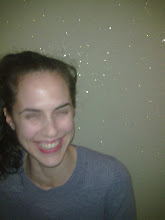Both missions are related. Understanding how my movie ends implies understanding whether my characters succeed or fail in achieving their goals, and also implies understanding what kind of change my characters go through, or whether they change at all.
It's conventional for a leading character to go through a certain change or transformation, to learn something about him/herself. But what does that mean exactly?
Does it have to be that redemption type change that Melvin (Jack Nicholson) goes through in "As good as it gets"? A misogynic lonely man with a bad OCD case who's ready to let go of his habits for the chance of loving and being loved? There are also the Dustin Hoffman cases: The chauvinist actor who finds sensitivity after experiencing the everyday life of women by pretending to be one in "Tootsie"; Or the man acquiring fatherhood squeals, and fighting for his right to be a full-time father in "Kramer vs. Kramer". And then there's Jack (Robert de Niro) in "Meet the Fockers", who learns that in order to make peace with his family he must let go of his obsession to control them.

 As opposed to the examples above, my characters are not the "problematic" types you automatically accept to be transformed by the end of the movie. Must transformation be so obvious, so easy to put in words? Do Jack Lemon and Tony Curtis experience a transformation in "Some like it hot"? Clearly, they go through a significant experience pretending to be women - but is it so easy to sum up their transformation in words?
As opposed to the examples above, my characters are not the "problematic" types you automatically accept to be transformed by the end of the movie. Must transformation be so obvious, so easy to put in words? Do Jack Lemon and Tony Curtis experience a transformation in "Some like it hot"? Clearly, they go through a significant experience pretending to be women - but is it so easy to sum up their transformation in words?This sends me browsing through film history, looking for characters who don't change. One of the strongest examples is Trevor (Tim Roth) in "Made in Britain" (Alan Clarke, 1982) – the teenage skinhead who ridicules the authorities' attempts to make him a better, civilized man. On the other hand, there's Nola Darling in "She's gotta have it" (Spike Lee, 1986), who almost changes but at the end chooses to stay true to herself and not to commit to one man. Nihilism, feminism. These two characters win by not changing. They choose not to change though society tells them to, and they are happy with their choice – even if for Trevor this choice means a life of going in and out of prisons, even if for Nola it means forever being referred to as "freak".


 And then there are Woody Allen's characters in "Annie Hall" and "Manhattan". Both movies are love stories in which the woman, his love interest, is the one going through changes, maturing, and he stays pretty much the same. He doesn't want to change. He wants to change them, educate them – but doesn’t want them to go through any autonomic changes. Both movie endings are melancholic. He had the girl, and the girl moved on.
And then there are Woody Allen's characters in "Annie Hall" and "Manhattan". Both movies are love stories in which the woman, his love interest, is the one going through changes, maturing, and he stays pretty much the same. He doesn't want to change. He wants to change them, educate them – but doesn’t want them to go through any autonomic changes. Both movie endings are melancholic. He had the girl, and the girl moved on.I feel that in this specific screenplay I'm writing, a comedy, I'm more drawn to characters who refuse change. Doesn't change make comedies less funny, more didactic?







2 comments:
Very interesting questions... a good example is Bringing up Baby, with Cary Grant's refusal to loosen up and let go of his obsession with the intercostal clavicle.
Change to be constructive involves truth, finding out the real reason behind your behavior. In Manhattan, the epiphany is Allen realizing he'll never be happy as he's always admiring the greener lawn.
We love to see people "wake up" to the fact that they're closed off or immature.
A great moment for me comes in the otherwise mundane AMERICAN PIE. At the end they are all much more mature, having been laid or whatnot. One of them is about to make a snide crack when the other tells him he's still a virgin, then he stops, corrects himself and says "hey, that's cool, man." I almost cried. You never see that in the movies... Check out OBSERVE AND REPORT too for this in comedy, but in the opposite pitch black taxi driver way, where the character goes deeper into darkness, but it's just as much self as the light, so in the end it's all about discover of true nature...at least for me.
Thanks, these are good points. I liked your AMERICAN PIE remark.
Haven't seen OBSERVE AND REPORT yet. I'll look it up.
Post a Comment